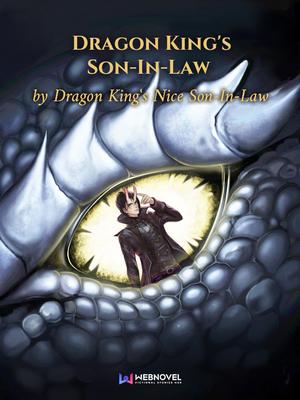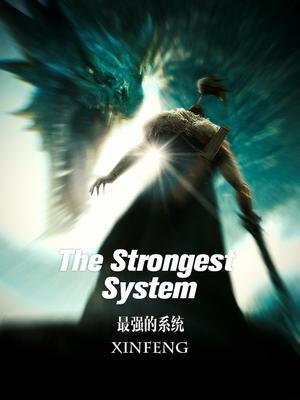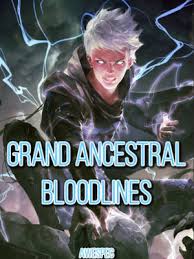The Story in 3 Sentences
An ordinary university student named Hao Ren stumbles into a hidden world of dragons and cultivators after swallowing a mysterious candy dropped by a falling girl, instantly binding him to the fate of the East Ocean Dragon Palace.
He must juggle the absurd pressures of campus life at East Ocean University with the deadly politics and ancient power struggles of dragon clans, all while his status as the Dragon King’s son-in-law makes him a target for enemies and a pawn for allies.
What begins as a chaotic comedy of errors evolves into a sweeping tale of hidden identities, cosmic tribulations, and hard-won power, culminating in a grand wedding that reshapes the balance between the human and dragon realms.
Why It Stands Out
1. The Slice-of-Life Cultivation Revolution
This novel masterfully blends the mundane with the mythical, turning university lectures, campus crushes, and dorm life into the backdrop for epic cultivation battles and dragon court intrigue. It doesn’t just add magic to the modern world — it makes the modern world the magic, where passing an exam can be as crucial as surviving a heavenly tribulation. The tonal balance is its superpower, letting you laugh at Hao Ren’s awkward social blunders one moment and gasp at his earth-shattering power the next.
2. The Harem That Actually Has Stakes
Forget shallow wish-fulfillment — the romantic entanglements here are woven into the plot’s very fabric. Each woman in Hao Ren’s orbit, from the class rep with secret lineage to the dragon inspector posing as a teacher, carries her own agenda, power, and political weight. Their relationships aren’t just romantic subplots; they’re alliances, liabilities, and sometimes, weapons. The harem structure becomes a narrative engine, not a decorative feature.
3. The Dragon Bureaucracy Nobody Saw Coming
The real genius lies in how the novel treats dragon clans like corporate conglomerates and ancient sects like government agencies. There are boardroom-style power plays, inter-clan treaties disguised as business mergers, and celestial tribulations that feel like regulatory audits. It’s a fresh, satirical take on xianxia tropes that turns divine beings into overworked executives and heavenly laws into legal loopholes — making the fantastical feel weirdly, hilariously relatable.
Characters That Leave a Mark
There’s Xie Yujia – the seemingly perfect class representative whose quiet strength hides a terrifying lineage and a grandmother who could level cities, making her the human shield no enemy dares touch.
You’ll meet Su Han, who walks the halls of East Ocean University as a stern lecturer but wields the authority of the Dragon Temple, balancing human and dragon law with a gaze that can freeze Hao Ren mid-sentence.
And Zhao Kuo? They’re the one who failed the Heavenly Tribulation, a fallen general whose ambition and bitterness fuel the war between dragon factions, turning personal failure into a catalyst for continental chaos.
The Flaws Fans Debate
The pacing is wildly uneven, with the first 600 chapters luxuriating in slice-of-life moments while the final 150 chapters sprint through world-ending stakes and introduce a flood of new characters with little buildup.
The protagonist’s cultivation growth sometimes feels secondary to romantic and comedic beats, frustrating readers who crave consistent power progression and high-stakes martial arts duels.
Some female characters, despite their power, occasionally fall into tropey reactions or exist primarily to validate Hao Ren’s worth, undermining the novel’s otherwise strong ensemble dynamics.
Must-Experience Arcs
Ch. 1–50: The Candy That Changed Everything – description. Hao Ren’s life implodes in the best way possible after swallowing the dragon candy, introducing him to Zhao Yanzi, the dragon girl, and the terrifyingly cheerful Zhao Hongyu, who casually informs him he’s now family — and bound by ancient, inescapable dragon law.
Ch. 350–450: The Dragon Palace Gambit – description. The East Ocean Dragon Palace erupts into open conflict as old grudges resurface and Zhao Kuo’s failed tribulation becomes a rallying cry for rebellion, forcing Hao Ren to choose sides while dodging assassination attempts between midterm exams.
Ch. 750–790: The Heavenly Dao Wedding – description. The finale isn’t a battle — it’s a ceremony. Hao Ren’s marriage becomes the stage for the ultimate power play, uniting dragon clans, settling cosmic debts, and proving that sometimes, the most world-shattering act isn’t throwing a punch, but saying “I do.”
Killer Quotes
“Power isn’t given — it’s claimed between the cracks of fate and the silence before the storm.”
“Cultivation isn’t about defying heaven — it’s about convincing heaven you’re too useful to smite.”
“A son-in-law’s greatest weapon isn’t his fist — it’s his ability to show up, smile, and survive the dinner table.”
Cultural Impact
It amassed over 33 million readers on Webnovel, becoming a benchmark for urban cultivation-comedy hybrids.
Fans still debate whether Xie Yujia or Su Han is the “true endgame,” spawning endless forum threads and meme wars comparing their power levels and tea-making skills.
The phrase “ate a candy, became a dragon’s problem” entered webnovel slang as shorthand for any protagonist thrust into cosmic nonsense through sheer bad luck.
Final Verdict
Start Here If You Want:
A hilarious, heartfelt ride where campus crushes collide with celestial calamities.
A harem story where every woman has agency, power, and a plan that doesn’t revolve solely around the MC.
A cultivation novel that treats divine politics like corporate mergers and heavenly tribulations like performance reviews.
Study If You Love:
Deconstructions of xianxia tropes through the lens of modern institutional satire.
Narratives where romance and power are inextricably linked, not just parallel tracks.
The art of tonal whiplash done right — where a chapter about acing a math test can seamlessly lead into a battle against a sea god.
Avoid If You Prefer:
Strict, linear power progression with constant martial arts escalation.
Stories where the protagonist is a lone wolf who solves everything with fists, not favors.
Plots that avoid romantic entanglements or treat them as shallow distractions rather than core narrative drivers.





